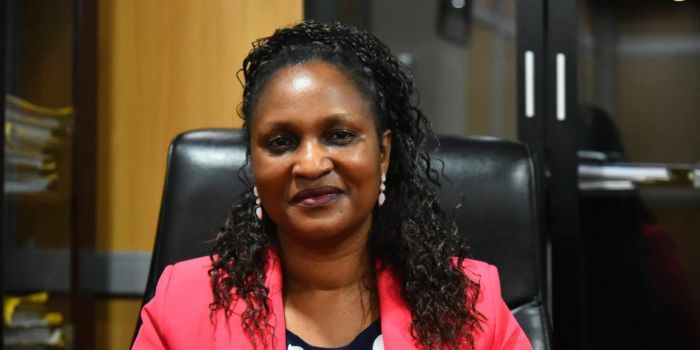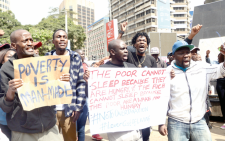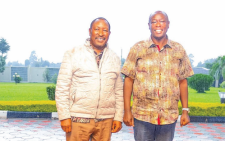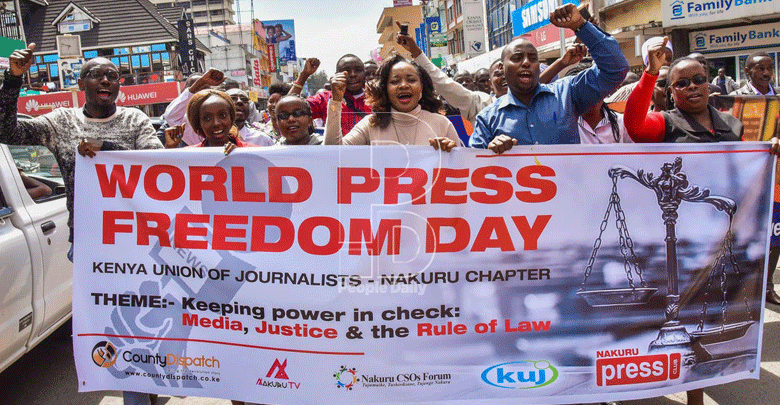Parties, civil society must cooperate on shared ideals

On September 30, Chama Cha Uzalendo secretary general Philippe Sadjah posted denigrating comments on his Facebook page that shouldn’t go unchallenged, disparaging civil society organisations (CSOs) for “being too fast in levelling accusations at political parties for non-compliance, yet parties neither get funding from donors nor the public”.
Political parties, he claimed, “take care of their own budgets from contributions by well-wishers, party representatives, or if lucky the Political Parties Fund”, adding that sometimes these budgets are not met because of non-remittances from representatives, without acknowledging as much that members’ contributions also fall in the category of ‘donations’!
Sadjah then wondered whether CSOs really know how much it costs to open and maintain offices at the headquarters; and in 24 of the 47 counties as required under the Political Parties Act, before answering his own question in the negative, claiming that CSOs are clueless on such expenses “because everything in their budgets is taken care of by donors”.
The outrage came within weeks of a successful launch by the Office of the Registrar of Political Parties (ORPP) of a finance, accounts and procurement policy and procedures manual for political parties, a function that a number of CSOs attended and addressed. Over time, the ORPP has done a commendable job contributing to the growth and development of political parties, churning out several tools and resources for political parties and the public in general as they seek to capture political power in Kenya’s evolving democracy.
The ORPP website is a rich collection of tools and resources anyone would need to run a strong and flourishing political party. These include guides on how to reserve names and register parties; resource manuals on leadership, training and capacity building; membership; and the most recently launched finance, accounts and procurement policy and procedures manual.
Sadjah’s imputation also came at a time when political parties have been publishing their annual audited financial statements in accordance with the diktats of the Political Parties Act and other relevant laws, a process I’ve always monitored keenly over the years.
So far, I have seen Chama cha Kazi; United Party of Independent Alliance (UPIA); Kenya Union Party; Muungano; Peoples Party of Kenya; National Agenda Party; Democratic Party; Agano; ODM; and Maendeleo Chap Chap publish their 2022/23 financial statements in daily newspapers.
From the statutory financial statements, one can clearly infer that a majority of the 104 registered political parties in Kenya are still struggling financially.
The more established seem able to afford prominent spaces in the newspapers. The rest tuck their statements in the marginal pages that only eagle-eyed readers can locate, most of them one-liners that only draw attention to the subject before swiftly concluding with some reference to a website.
Be that as it may, the financial strains of political parties shouldn’t be used to camouflage unwarranted attacks on civil society groups. Besides, several contradictions characterised Sadjah’s rancorous attack.
On Facebook, Sadjah introduces himself as a specialist in governance, leadership, democracy and human rights, betraying his footprints in the very sector that he’s now turned into a punching bag.
But it’s his previous and current membership on the boards of CSOs like the Centre for Multiparty Democracy, the Youth Agenda, and the Political Parties Liaison Committee that leaves one wondering why Sadjah is now biting the very hands that fed him, and helped to grow him into the position he holds as adviser in Machakos Governor Wavinya Ndeti’s empowerment programmes.
In its broadest sense, ‘civil society’ is the arena outside of the family, State, and the market that citizens and their organisations create and use to advance the common good. Political parties that aren’t part of the State are, therefore, part of the civil society, and should find ways of working together to advance mutually shared ideals and aspirations, rather than attack each other.
— The writer is the Executive
Director of the Kenya National Civil Society Centre; suba_churchill@yahoo.com












